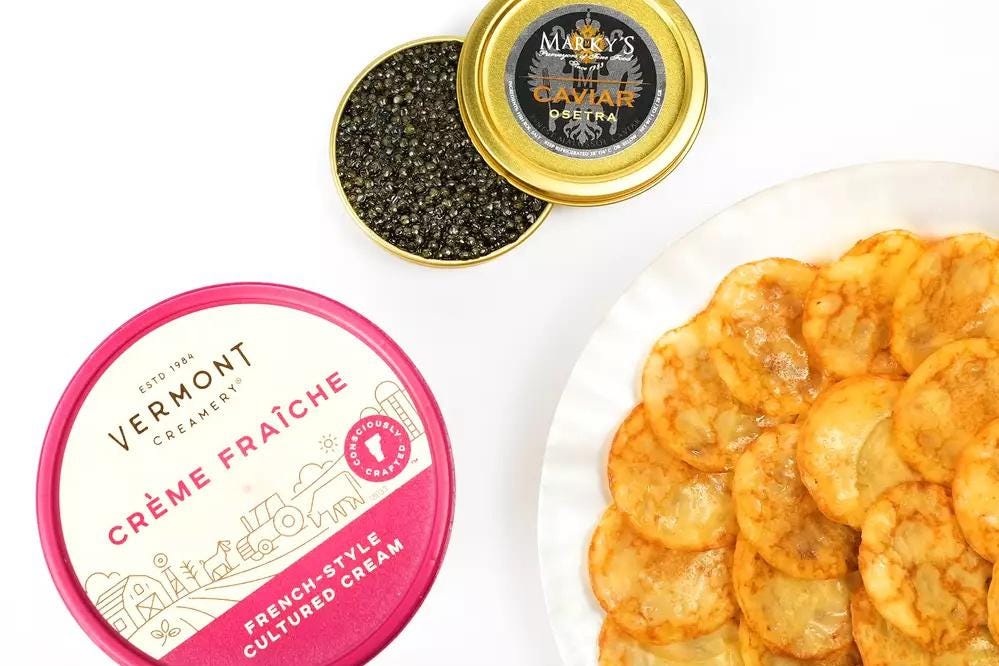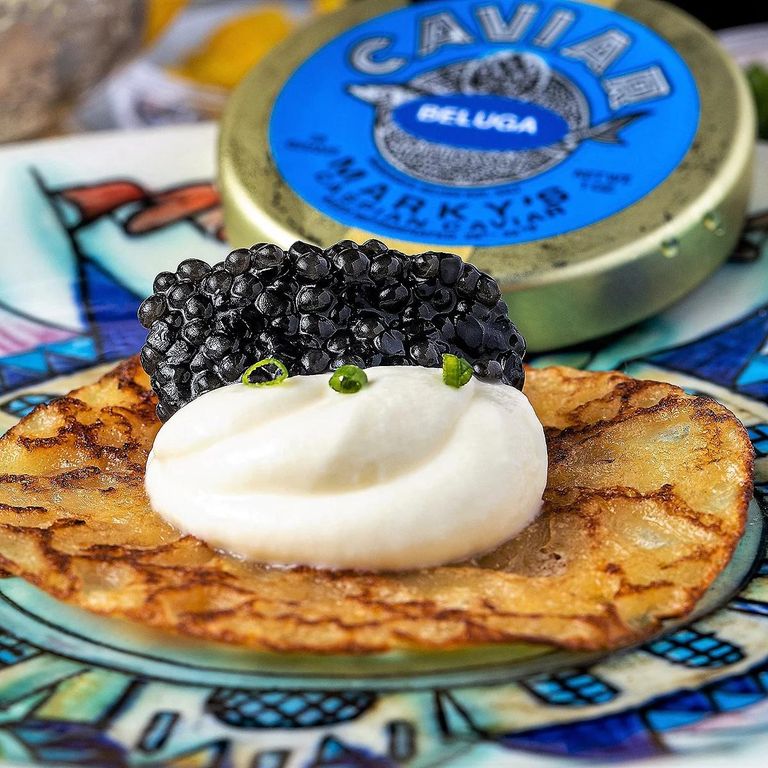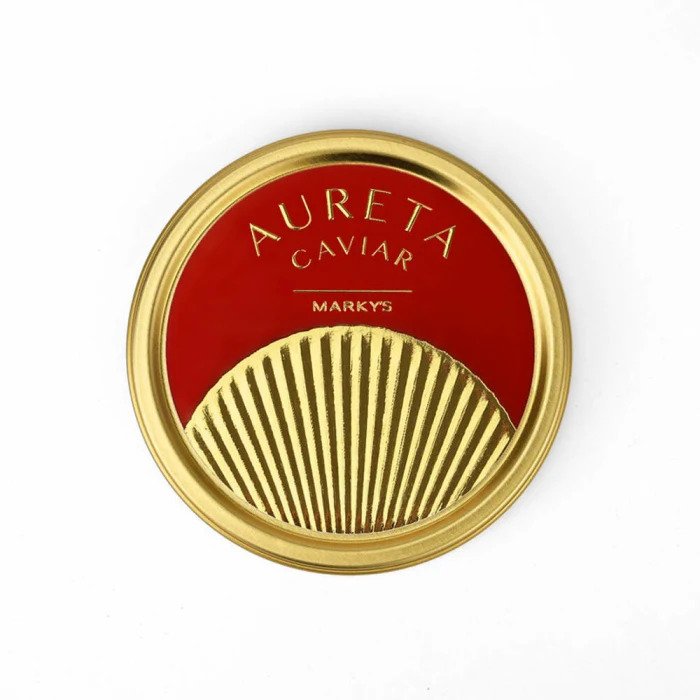The Future of Fine Dining Is in Good Hands with the Season 19 'Top Chef' Winner
Meet the chef who grew up working in restaurants and studied eight seasons of the show to develop a winning game plan.

If fine dining is on the fritz, somebody forgot to tell Buddha Lo.
Lo consistently delivered the goods during Season 19 of Top Chef in Houston. He thrilled a table of judges (me included) again during the show's final episode in Tucson by dipping into his bag of recipes and French techniques and following a disciplined playbook he had written during quarantine. Lo's dish of raw hamachi and caviar enrobed in a frothy, creamy wine sauce would have been at home at guest judge Eric Ripert's seafood-centric restaurant Le Bernardin. And he cooked from flavor memories back home in Australia, with renditions of lobster laksa and Mongolian lamb that paid homage to his late dad Tony Lo, a restaurateur.
Before the finale aired I spoke with Lo about his journey from working alongside his family as a child at their Chinese restaurant in Port Douglas, Australia, to three Michelin-star restaurants in London and New York City. He was Zooming in from Huso, the tiny speakeasy-like tasting room behind Marky's Caviar shop on Madison Avenue in New York City where he's served as executive chef since 2019.
He started watching Top Chef at 15 and added the show to his career bucket list. During quarantine before the show began taping, Lo binge-watched eight seasons. He took notes, learned from contestants' mistakes during eliminations, and emerged with a strategy for the competition that he committed to memory. It served him well, even when he was challenged to cook with unfamiliar Texas regional foods like biscuits, carne seca, and cactus.

Winning Top Chef didn't just change his life; it changed Huso's fortunes, too. "I was putting out the same quality food that I was doing on the show and no one was interested in coming in," Lo says.
Business for his eight-course tasting menus began to pick up as Lo progressed through the season. Now it's time for Lo and his employer to find a bigger space.
"I'm looking to do a 50-seat dining room in Manhattan," he says. "I'm so ready to show the world what I can do. When you do something great in New York, the world knows about it."
I'm so ready to show the world what I can do.
And after that? Maybe butcher shop, seafood market, and café concepts, the 30-year-old says. For the past 18 years as a professional chef, Lo has cooked everything from club sandwiches poolside and fried eggs in cafes to 25-ingredient dishes in gleaming high-end kitchens. There will be time to open more casual spots down the road. For now, he's fueled by the pressure to create one of the best tasting menus in New York.
He acknowledges the challenges created by widespread labor shortages and the rising cost of goods during the pandemic. Last fall during the taping of episode 8 in Houston, Top Chef judge Tom Colicchio added another theory: blaming food media for the current state of fine dining. At the judges' table a few minutes after Lo and his team started service, I mentioned — on camera — about how ambitious it was to create a fine dining concept for the show's Restaurant Wars challenge. Colicchio looked me in the eye and said something to the effect of, "Well, you guys are killing fine dining."
Score one for fine dining.
Weeks later I reminded Colicchio about his remark as we walked off the set of the finale after the finalists' menus. Score one for fine dining.
Lo says luxury ingredients like caviar and truffles still resonate with customers today. "People say, ''Oh, fine dining is dead. Fine dining doesn't have a place.' [But] food is like music: There's a place for rock, there's a place for metal, there's a place for classical music. There's a place for everything."

Lo believes the new model must lean into smaller, more personable dining experiences that balances customers' needs, which have always taken priority, with those of his employees. That starts with paying staff a fair wage and cutting back hours. "Now you have to find a system which doesn't need 50 chefs to cater to 30 people," he says. Fewer hands and hours means simpler plating styles, bigger flavors, and more efficient systems in the kitchen.
While competing on the show, judges sometimes knocked Lo for being a technician. But he also displayed confidence at the table and a spirit of hospitality that took root as a child. He was washing dishes at his family's restaurant at age 10 when his mom asked him to run food to the tables on a busy night.
Buddha Lo's Playbook for Winning Top Chef
Wanna be a contender? Follow these four rules and you will be happy with the dishes you make for the judges, says Top Chef Season 19 winner Buddha Lo.
- Listen to the challenge. "This is a competition and there are challenges with very specific criteria. [Every contestant] can cook great food, that's why we're all in the competition. But how you can cook according to the challenge is the most important part."
- Taste everything. Make it delicious. "But there's no point in putting out something tasty if it means nothing towards the challenge."
- Presentation is key. "Everyone can make great tasting food, but how can you also make it look amazing? The viewers can't taste my food either, but if I can make it look good, that way I can utilize my time to show the world and America what I can do."
- Finish the dish. Don't quit. "Don't do too many things that you won't be able to complete the dish because [the judges] are going to look more towards the incomplete dish than how the dish was just on its own.
"My dad did live crabs and live lobsters. So I would take it to the table and then everyone would be like, 'Oh my God, how good is this? There's this little kid, there's this lobster, everyone's amazed by the food. I really feed off this energy of people loving this beautiful food being brought to the table."
After two years serving food, Tony Lo gave his son Buddha a job in the kitchen. By 14 he was working weekends at a five-star hotel. Fast-forward to culinary school. An apprenticeship in France. Jobs under Clare Smyth and Gordon Ramsey in London. Then Eleven Madison Park in New York City, where his wife Rebekah, who he met back in Melbourne, works as a pastry sous chef. In 2019, Huso came calling.
He craves the pressure of competition. "I've been uncomfortable my whole life, really," Lo says. "So to be in these uncomfortable situations where you have to cook under high pressure, that's the way I grew up. I left home as soon as I graduated from high school. I went to France by myself. That was the most uncomfortable I've ever been.






